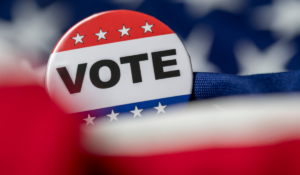Rep. Edwards passes major education plan


COLUMBUS, Ohio – The Ohio General Assembly has given final approval to legislation cutting red tape for schools and giving high school students greater clarity regarding state graduation requirements.
House Bill 491, sponsored by Rep. Jay Edwards (R-Nelsonville), received strong bipartisan support in both the House and Senate today and now awaits the governor’s signature.
Edwards initially introduced the legislation to help schools reduce red tape and secure licensed professionals as substitutes, but the final version also includes a much-needed reform package to give the Class of 2019 and 2020 greater clarity on the state’s graduation requirements.
Under the bill, the state’s graduation requirements will remain the same for those graduating next year as they were for this year’s graduating class. The requirements will be somewhat modified for the Class of 2020.
Meanwhile, state leaders will continue working on a permanent plan. To that end, the bill directs the Ohio Department of Education to present its recommendations to the legislature by April 1, 2019.
Edwards said the bill is a balanced approach that gives students clarity and flexibility while the state hammers out a long-term solution.
“We all agree on the importance of rigorous standards, and I believe this will help us achieve a permanent solution without penalizing thousands of students rapidly approaching graduation,” Edwards said.
Separately, the bill contains several other provisions, including a requirement that the State Board of Education issue substitute licenses to individuals already licensed in their profession who wish to also work as a substitute in local schools.
Under current law, licensed professionals in several fields are required to go through the process of obtaining a second license just to work as a school substitute. This dual licensing creates an administrative burden and limits the number of prospective substitutes for schools.
These individuals would still have to pass a background check, under the bill.
The bill would apply only to school speech-language pathologists, school nurses, school audiologists, occupational therapists, physical therapists, occupational therapy assistants, physical therapy assistants and school social workers.









